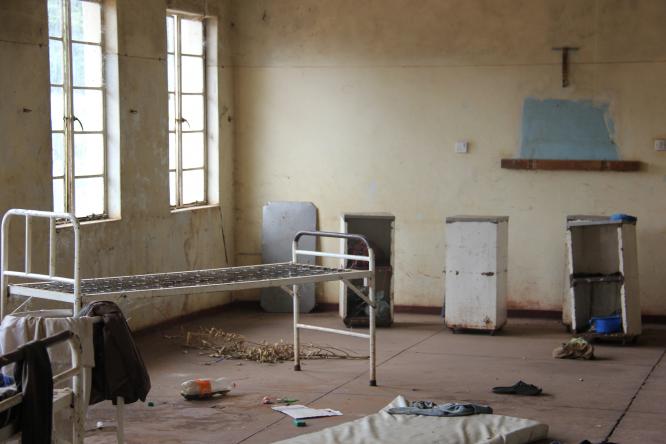Zambia High Court Calls for Review of Mental Health Law
Lusaka Zambia - On 17 November, Zambian disability activists from the Mental Health Users Network of Zambia (MHUNZA) and Disability Rights Watch (DRW) held a press conference on the outcome of decision of the Zambian High Court concerning the constitutionality of the 1949 Mental Disorders Act.
 A psychiatric facility in Zambia. (c) MDAC.
A psychiatric facility in Zambia. (c) MDAC.
In a Petition brought by three people with psychosocial disabilities, and on behalf of MHUNZA, it was argued that the 1949 Act was unconstitutional, discriminatory and incompatible with the 2012 Persons with Disabilities Act, which domesticates most of the United Nations Convention on the Rights of Persons with Disabilities (CRPD). The Petitioners gave evidence of personal and systemic abuse and rights violations including through the use of coercive isolation and detention in prisons and psychiatric institutions, physical violence, deprivation of healthcare services, inhumane conditions in detention including inadequate sanitation and food, and forced psychiatric treatment under the Act. They gave evidence that these practices occurred without court orders and on the sole basis of their disabilities.
DRW argued as a friend of the court (amicus curiae) that Act was at odds with the CRPD.
The State did not oppose the application or contest the Petitioners’ facts. The State, however, made submissions that the Court should withhold declaring the 1949 Act invalid in its entirety as a new Mental Health Bill is going to be tabled in Parliament.
In a judgment of 9 October 2017, the High Court declared a section of the Act unconstitutional and called for a “thorough review” of the Act by the Zambian government. The Court considered the language in the Act to be highly offensive, derogatory and discriminatory against persons with mental disabilities, exemplifying that “the drafters of the 1949 law did not have anything in mind as far as the protection of human rights and fundamental freedoms was concerned.”
The Court held that mental health treatment must be provided in a manner that is humane and that mental health services should be available at primary health care level, criticising discrimination in the provision of health care services and mental health services to people with mental health needs.
During the press conference on Friday, Mr Mulima Kasote (MHUNZA Chairperson) speaking on behalf of MHUNZA and DRW stated, “Recently, the Human Rights Commission and Disability Rights Watch convened a stakeholders meeting on the draft Mental Health Bill at which stakeholders were updated on the outcome of the court case. All stakeholders present agreed that the judgment had far reaching implications and called for the immediate enactment of the Mental Health Bill.”
“We implore all stakeholders including the Ministry of Justice, the legislature and law enforcement agencies to whom this judgment has implications, to quickly sit up and ensure the Mental Health Bill is enacted. The judgment in its current form is binding and its application will create gaps in the operations of the police, the judiciary and the Zambia Correctional Services among other institutions,” said Kasote.
“Zambia needs to urgently resolve the inconsistency in its law. Zambia’s Constitution and newer laws embrace the CRPD and human rights, while the older legislation maintains discriminatory provisions such as the Mental Disorders Act and provisions in the Penal Code that lead to torture, inhuman and degrading treatment and abuse of people with psychosocial disabilities and mental health service users,” said Felicia Mburu of the Mental Disability Advocacy Centre (MDAC) which provided technical support on the case.
“Zambia has the opportunity to lead the region in human-rights based reform of its approach to mental health and to end discrimination against people with mental disabilities. The Court’s judgment shows how the Mental Disorder’s Act is an impediment to that potential,” said Annabel Raw, health rights lawyer at the Southern Africa Litigation Centre, which supported the case.
The Petitioners were represented by Felicity Kalunga and Chipo Nkhata of Mushota and Associates. The amicus curiae was represented by Katindo Mwale and Brian Mwanza of the Legal Resources Centre.

